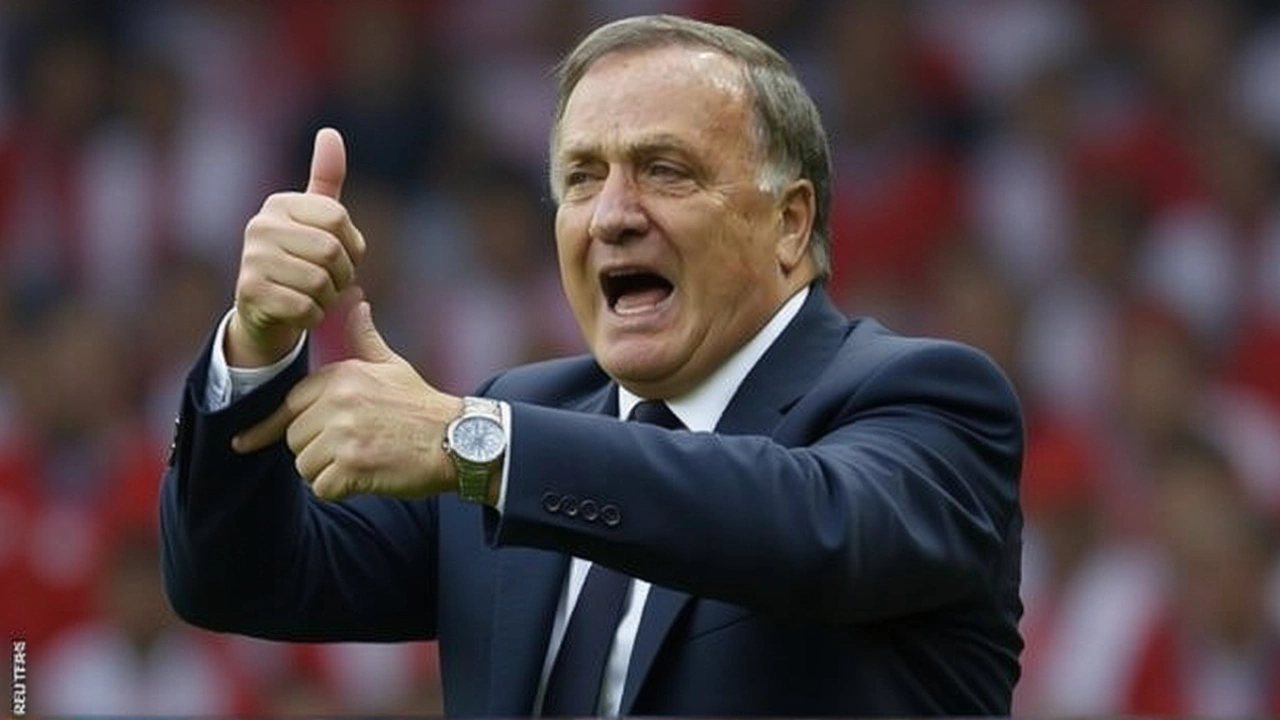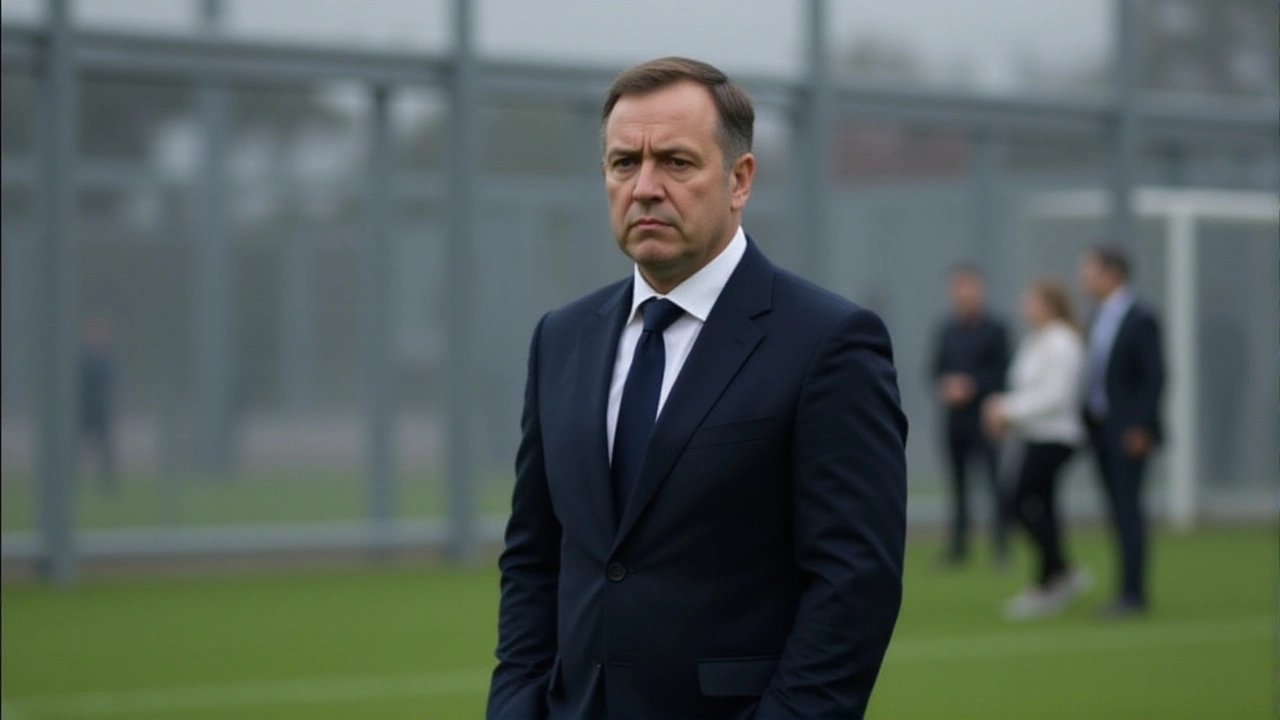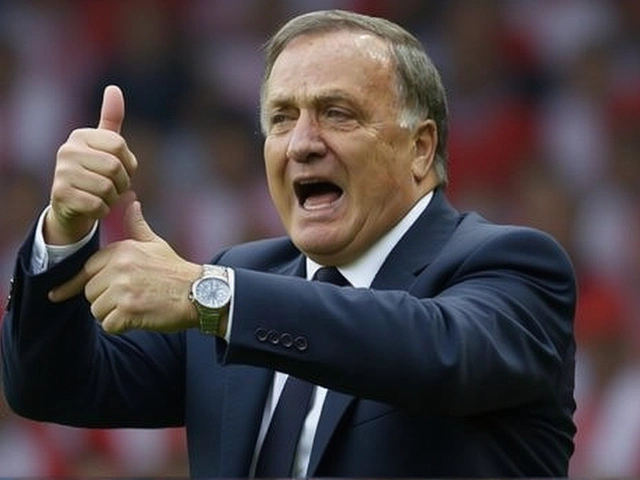
When Dick Advocaat walked out of the Stadium of Light on October 4, 2015, he didn’t just leave a job — he left behind a club teetering on the edge of disaster. The 68-year-old Dutch manager resigned after eight consecutive Premier League defeats, leaving Sunderland AFC rooted in 19th place with just five points from eight games. It wasn’t just poor form. It was a collapse. And Advocaat, once the man who saved them last season, knew the only way to stop the freefall was to step aside — even if it meant walking away from a contract he’d only signed six months earlier.
A Manager Who Once Saved Them
It’s easy to forget how close Sunderland came to relegation last season. Advocaat took over on March 17, 2015, after Gus Poyet was sacked following a 4-0 thrashing by Aston Villa. The team was in freefall. But Advocaat steadied the ship. He won three of his final six games, including a crucial 1-0 victory over Norwich in the penultimate match. They survived. He celebrated. And then, a week after the season ended, he announced his retirement. "I’m done," he told reporters. "Time for a quiet life." But Ellis Short, the American owner of Sunderland AFC, wouldn’t let him go. Along with sporting director Lee Congerton, he persuaded Advocaat to return. On June 4, 2015, he signed a one-year deal. He brought back Jeremain Lens from PSV and re-signed Fabio Borini on loan from Liverpool. It looked like a masterstroke. Until it didn’t.The Unraveling
The 2015-16 season began with a 1-0 home loss to Leicester City. Then came defeats to Manchester United, Bournemouth, and Stoke. A 2-2 draw with West Ham on October 3 — a result that lifted them off the bottom of the table on goal difference — was the final straw. After the match, Advocaat gave a cryptic answer to a reporter: "Today I am the manager. What will happen in the next weeks, months, I cannot say." The next day, he resigned. He didn’t blame the players. He didn’t blame the board. He didn’t even blame the transfer market. In his statement, he said: "I feel it is the right time to do this — not for me, but for the club. I have made the decision to go after only eight games as I felt it was important to give everyone time to turn things around — like we did last year." It was a rare act of selflessness in modern football. Most managers cling on, hoping for a turnaround. Advocaat knew the team needed a fresh voice. A new energy. He stepped aside so someone else could try.Who’s Left Behind?
His assistant, Zeljko Petrovic, also left. That meant no continuity. No safety net. Sunderland’s coaching staff was wiped clean. The club was now without a manager, without momentum, and without confidence. They had scored just six goals in eight league games. Their defense had conceded 18. The only win of the season? A 6-3 thrashing of Exeter City in the League Cup — a result that felt like a cruel joke in the context of Premier League survival. Short’s response was measured: "I am truly saddened by Dick’s decision, but I respect him for his honesty and for doing what he feels is right for the club." That’s the thing about Advocaat — he didn’t leave because he was fired. He left because he believed the club deserved better than a manager who’d lost the plot.
The Ripple Effect
Advocaat became the first managerial casualty of the 2015-16 Premier League season. But he wouldn’t be the last. Within weeks, managers at Aston Villa, Norwich, and eventually even Leicester — the very team that beat Sunderland on opening day — would be under pressure. The league was brutal. The margins were razor-thin. And Sunderland, once a club that had finished 13th the year before, was now in the relegation zone with the worst defensive record in the top flight. The question wasn’t just who would replace Advocaat. It was whether anyone could fix what was broken. The squad was aging. The midfield lacked creativity. The forwards couldn’t score. And the fans? They were already turning on the club’s ownership, wondering why they’d spent £40 million on players who looked lost on the pitch.What Comes Next?
Sunderland moved quickly. By October 7, they had appointed Sam Allardyce as their new manager. The 61-year-old Englishman, known as "Big Sam," had a reputation for keeping teams up. He’d done it with Bolton, West Ham, and Newcastle. He was the antithesis of Advocaat’s more technical, possession-based approach. But he was pragmatic. He knew how to organize a team. How to win ugly. How to grind out results. It worked — barely. Sunderland survived that season by two points. But the damage was done. The club never fully recovered its identity. The 2015-16 campaign became a turning point: the moment a once-proud club began its slow descent into mediocrity.
Advocaat’s Legacy
Advocaat’s career is one of quiet brilliance. He managed the Netherlands at Euro 2000. He led Russia to the 2008 Euros. He won league titles in Scotland with Rangers and the Netherlands with PSV. But in Sunderland, he was something else: a father figure. A stabilizer. A man who didn’t chase headlines. He just wanted to keep a club from falling apart. He didn’t walk away because he failed. He walked away because he cared too much to let them fail quietly.Frequently Asked Questions
Why did Dick Advocaat resign after only eight games?
Advocaat resigned because Sunderland had lost all eight Premier League games and were in the relegation zone with just five points. He believed the club needed a fresh start and wanted to give his successor time to rebuild before the season spiraled further. He stated his decision was "not for me, but for the club," showing rare selflessness in modern football.
Who replaced Dick Advocaat at Sunderland AFC?
Sam Allardyce was appointed as Sunderland’s new manager on October 7, 2015, just three days after Advocaat’s resignation. Known for his pragmatic, defensive style, Allardyce guided the club to Premier League survival that season by a two-point margin, avoiding relegation despite a poor start under his predecessor.
What was Sunderland’s record under Advocaat in 2015-16?
Under Advocaat in the 2015-16 Premier League season, Sunderland played eight games: 0 wins, 3 draws, and 5 losses. They scored only six goals and conceded 18, earning just five points. Their only win of the entire campaign came in the League Cup against Exeter City, 6-3.
How did Advocaat’s first stint at Sunderland end in 2015?
After saving Sunderland from relegation in the 2014-15 season, Advocaat announced his retirement in May 2015. But he reversed his decision in June after being persuaded by chairman Ellis Short and sporting director Lee Congerton to return for one more year, signing a new contract despite having initially planned to step away from management entirely.
Was Advocaat’s resignation the first of the 2015-16 Premier League season?
Yes, Advocaat’s resignation on October 4, 2015, was the first managerial departure of the 2015-16 Premier League season. His exit came after a winless start and triggered a wave of pressure on other struggling managers, including those at Aston Villa and Norwich City, who were soon also under fire.
What impact did Advocaat’s departure have on Sunderland’s future?
While Sam Allardyce kept Sunderland up that season, the club never regained its pre-2015 stability. The failure to build a cohesive squad under Advocaat exposed deeper issues in recruitment and strategy. By 2017, Sunderland were relegated, and they’ve since bounced between the Championship and Premier League, struggling to regain their former identity.





